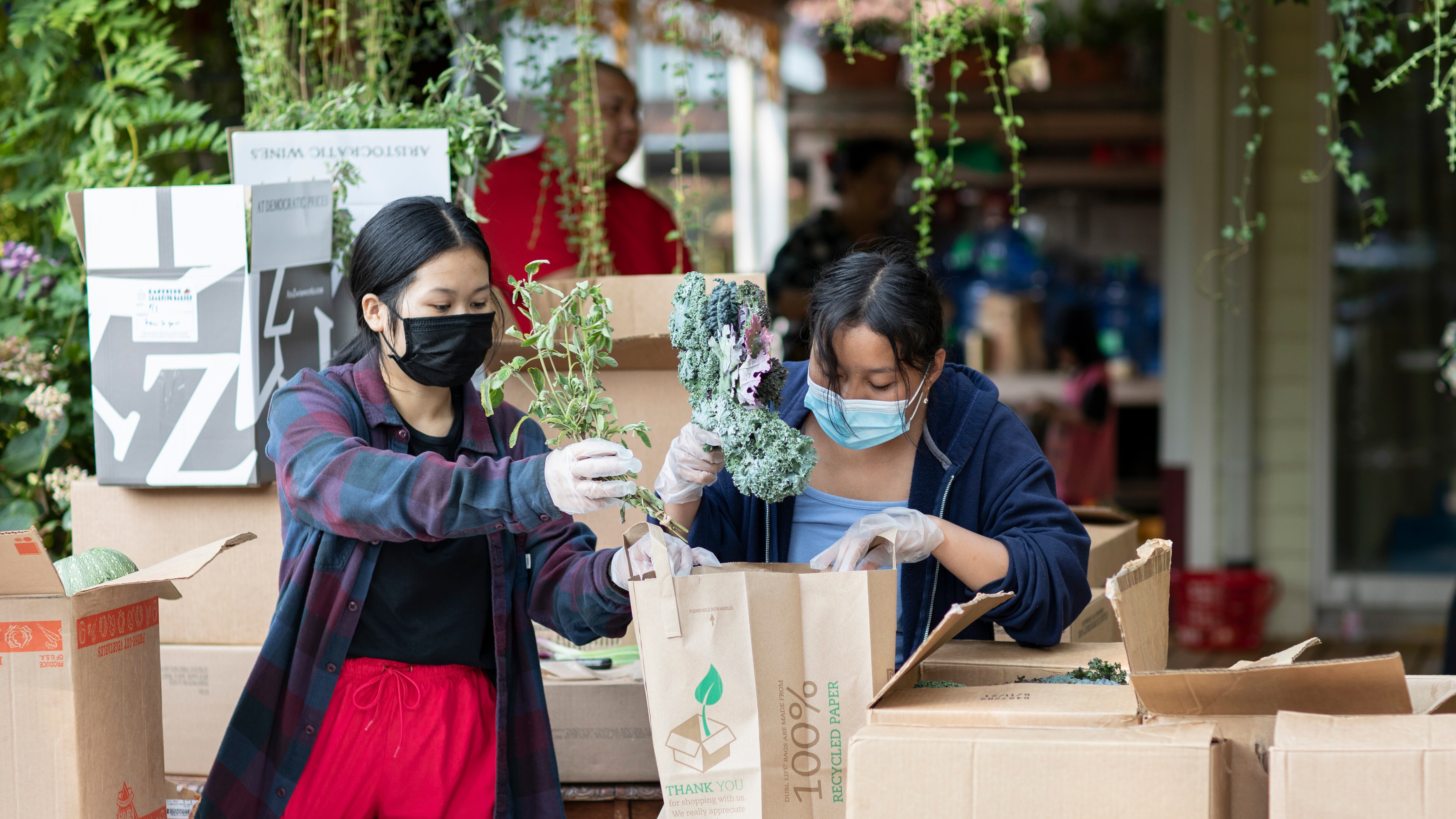It takes a lot to address hunger and its root causes here in Oregon.
There is, of course, direct food assistance, which the Oregon Food Bank Network provided to more than 1.2 million people in 2021 alone. There’s also advocacy, which helps to mobilize communities to take action for systemic change—to end hunger for good. There’s volunteering, donating and, last but not least, there’s voting.
That’s right. How people vote—and who they vote for—can have a big impact on the fight to end hunger.
“We know that we cannot achieve our mission to eliminate hunger and its root causes through food alone,” says Susannah Morgan, chief executive officer of Oregon Food Bank. “We must address the policies and systems that drive hunger and poverty in our communities.”
September is Hunger Action Month, a time when people everywhere join together to advocate, donate and volunteer in the fight to end hunger. This year, Oregon Food Bank will use Hunger Action Month to highlight the important link between hunger and voting.
“Throughout Hunger Action Month and in the lead-up to the fall elections, we will emphasize Oregon Food Bank’s systemic approach to ending hunger—and offer information, resources and opportunities for action that reinforce the importance of addressing food insecurity at its roots,” Morgan says.
Spotlighting hunger and voting, under the theme “Hunger on the Ballot,” is more important than ever, especially considering the prior two years. In the wake of the COVID-19 pandemic, nearly 1 in 5 Oregonians have faced food insecurity. The Oregon Food Bank Network served almost 1.7 million community members in 2020—nearly double what it saw in 2019. And while those numbers have dropped somewhat, food insecurity is on the rise in 2022.
Already, Oregon Food Bank has been working to make hunger an important issue at the ballot box. Earlier this year, the nonprofit sent questions to the candidates running for Oregon governor inquiring about where they stood on hunger-related issues. The questions—and responses—touched on everything from the governor’s responsibility for ensuring food access to systemic racism and affordable housing.
Oregon Food Bank is also hosting virtual Ending Hunger Power Night events, where attendees can learn more about specific issues and ballot measures, including those focused on education, health care and an inclusive, functional democracy.
Additionally, Oregon Food Bank has a range of actions that people can take to help during Hunger Action Month and throughout the year. Those include volunteering, donating, taking the Hunger on the Ballot pledge and spreading the word on social media.
Most importantly, Oregon Food Bank is drawing attention to one key date during Hunger Action Month. Sept. 20 is National Voter Registration Day. This annual effort, led by volunteers and organizations around the country, helps register people to vote. The food bank highly encourages everyone who is eligible to get registered.
And later this fall, perhaps most importantly Oregon Food Bank will be focusing on Tuesday, Nov. 8, 2022—Election Day.
“People can help us eliminate hunger and its root causes in so many ways,” Morgan says. “Voting is a critical piece to that mission, so we really encourage everyone to get out there, get registered and vote for the causes and candidates who will make a positive difference and end the unfair systems that create unequal access to food.”
Join Oregon Food Bank in voting to end hunger this year and every year, then we really can end hunger for good. Get involved at OregonFoodBank.org/HungerActionMonth.
